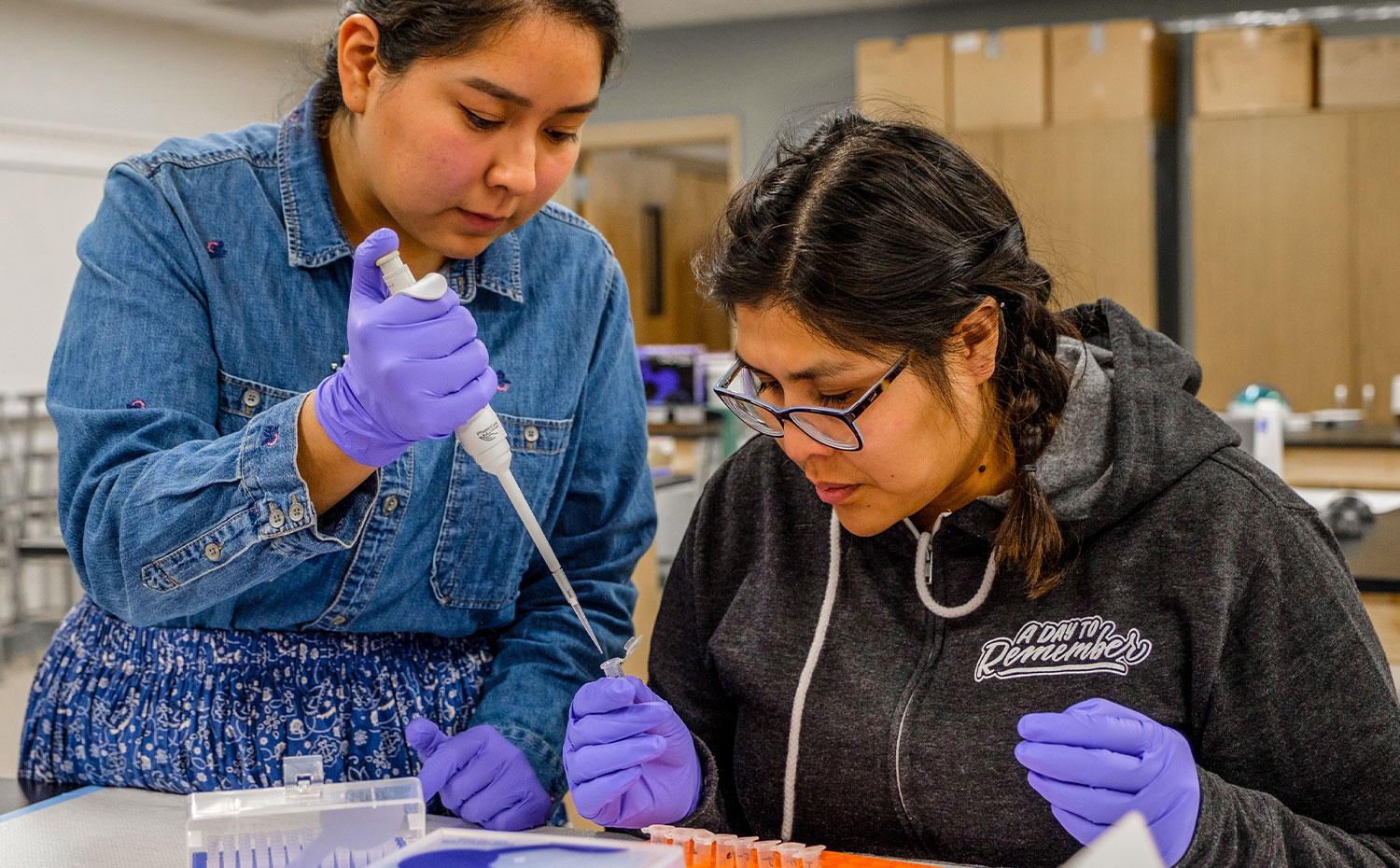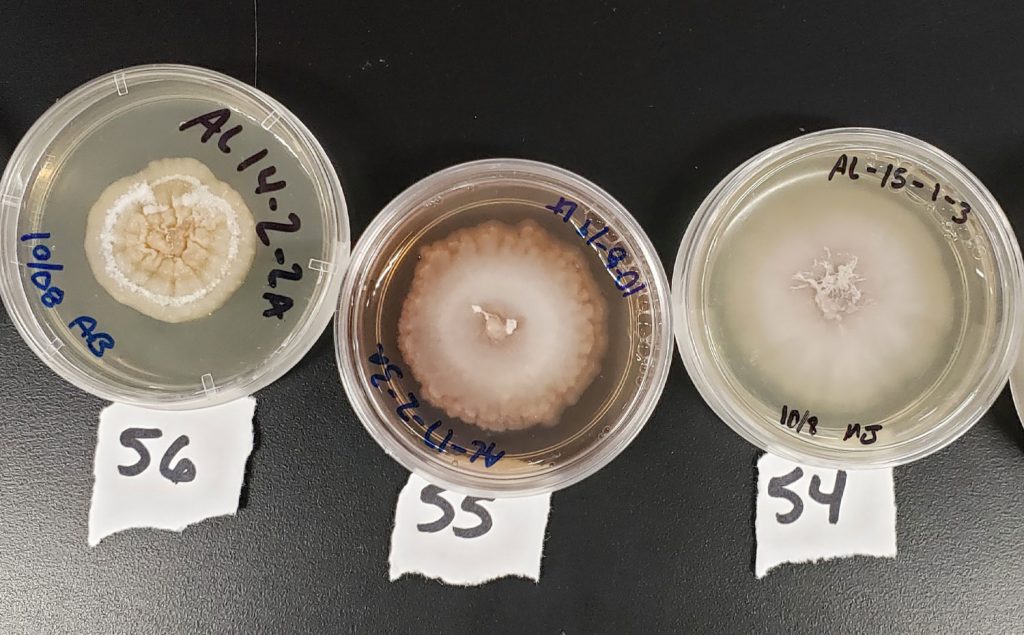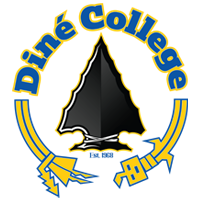
Diné College Science Profs Awarded $60K NIH Grant
FOR IMMEDIATE RELEASE
April 7, 2020
TSAILE, Ariz. — Two Diné College science instructors recently received a $60,000 National Institutes of Health equipment grant to develop research opportunities and infrastructure, officials said.
The college is a partner institution with the University of Alaska at Fairbanks in the endeavor which is entitled, “Biomedical Learning and Student Training (BLAST).”
Fred Boyd, Ph.D., a physics professor at Diné College, said the Faculty Pilot Project award went to Demetra Skaltsas, Ph.D., and Paul Arbetan, Ph.D., to support research over a two-year period. The two will come up with a research program that will subsequently be funded directly by other granting agencies, Boyd said.
Skaltsas came to Dine’ College as an assistant professor in August 2019 and teaches in the bachelor’s of science in agriculture and biology programs. Skaltsas’ primary teaching responsibilities are with plant biology. Her research is with endophytes and the role they play with respect to the health and communication of ecosystems.

Arbetan joined the Dine’ College faculty in August 2019, also Arbetan is an ecologist and environmental scientist and teaches in the college’s agricultural bachelor’s program as well as similar programs in biology.
Skaltsas directed two Diné College undergraduates the past academic year who were awarded research grants through BLAST at $2,000 per semester.
“All of this work is intended to build infrastructure of the type that will train our students and faculty to be able to respond to public health emergencies such as the coronavirus (COVID-19) epidemic,” Boyd said. “We certainly have had to make a number of adjustments to our working patterns, but hope to be back into a more normal pattern soon.”
Endophytes are fungus-like organisms that are present on many biological communities that may be “canary-in-a-coal-mine” indicators of changes in the health of ecosystems.
The student researchers working under Skaltsas have already identified unique endophyte species living in important native plant species that are part of traditional Navajo medicine.
Shazia Tabassum Hakim, Ph.D., and a microbiology instructor at Diné College, received a similar (equipment) grant last year in the amount of $31,000 that went toward the purchase of science equipment for Diné College’s Tuba City campus. Hakim said the equipment is related to molecular biology.
Diné College is a four-year school that was founded in 1968 as the first tribally-controlled institution of higher learning. The college operates six campuses in Arizona and New Mexico. The college offers associate’s and bachelor’s degree programs ranging from business administration to biology to fine arts. Scholarships are available through the American Indian College Fund.
CONTACT US
Marie R. Etsitty Nez
Vice President of External Affairs
marienez@dinecollege.edu
928-724-6985
George Joe, M.A., M.Ed, Director Of Marketing and Communications
grjoe@dinecollege.edu
928-724-6695
Bernie Dotson, Public Relations Officer
bdotson@dinecollege.edu
928-724-6697
Scott Tom, Graphic Design and Digital Media Specialist
shtom@dinecollege.edu
928-724-6698
Jazzmine D. Martinez, Marketing Assistant
jdmartinez@dinecollege.edu
928-724-6694
